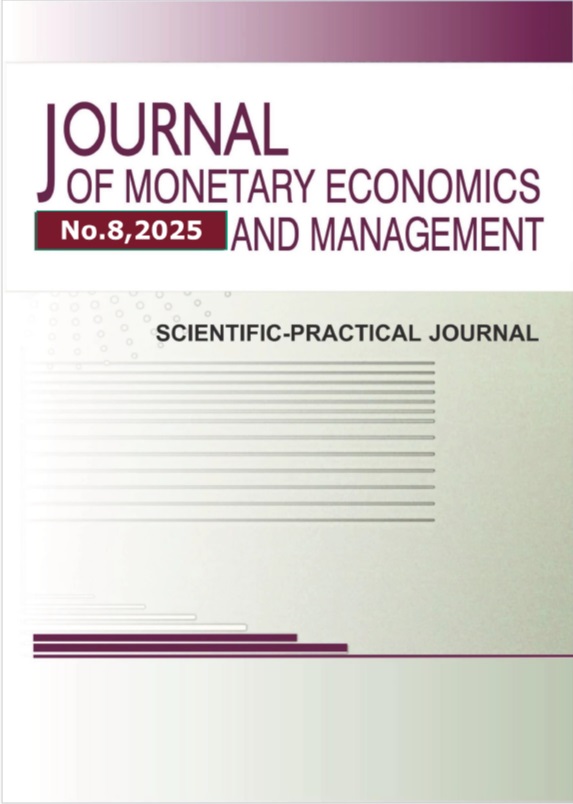student
The article considers digital dispatching as a market-technological infrastructure that ensures the economy of flexibility and balancing in the electric power industry. A holistic framework of the "digital economy of flexibility" is proposed, linking probabilistic load and RES forecasting, co-optimization of energy, reserves and network constraints, localized price signals and verified execution through SCADA/EMS/DMS/DERMS platforms and aggregators. It is shown that the transition from point to probabilistic forecasts in combination with sliding planning with short calculation intervals reduces excess reservation and the average cost of balancing. Nodal pricing and local flexibility markets reduce off-market redispatch and more accurately reflect deficits in distributed networks. To assess the comparative efficiency of resources, an applied metric CoDF (specific cost of delivered flexibility) is introduced, which allows comparing controlled demand, storage devices and maneuverable generation and adjusting market rules. The need for TSO–DSO coordination to prevent double accounting of services and prioritize local network tasks is substantiated. The key role of cyber resilience (secure telemetry, digital signatures, degradation modes) for scalable calculations and participant trust is emphasized. The results obtained form practical guidelines for regulators, system and network operators when designing markets and digital platforms for flexibility.
digital dispatch; flexibility economics; balancing; nodal pricing; local flexibility markets; DER/aggregation; co-optimization; CoDF; TSO–DSO; cyber resilience
1. Innovacionnye tehnologii v upravlenii sistemami obespecheniya dvizheniya poezdov / N. A. Popova, P. A. Bodrov, M. K. Popov, A. V. Butenko // Energetika transporta. Aktual'nye problemy i zadachi : sbornik nauchnyh trudov V mezhdunarodnoy nauchno-prakticheskoy konferencii, Rostov-na-Donu, 07–08 oktyabrya 2021 goda / Rostovskiy gosudarstvennyy universitet putey soobscheniya. – Rostov-na-Donu: Rostovskiy gosudarstvennyy universitet putey soobscheniya, 2021. – S. 48-51.
2. Dagldiyan, G.D. Primenenie sistem tehnicheskogo zreniya na zheleznodorozhnom transporte. / Dagldiyan G.D., Davydov Yu.I. Sbornik nauchnyh trudov "Transport: nauka, obrazovanie, proizvodstvo" ("Transport - 2018"). T.3. - Rostovn/D: RGUPS. 2018. - C. 55-59
3. Kolobov, I.A. Primenenie cifrovyh tehnologiy na zheleznodorozhnom transporte. Sbornik nauchnyh trudov "Transport: nauka, obrazovanie, proizvodstvo" ("Transport-2018"). T.3. - Rostovn/D: RGUPS. 2018. - C.107-110
4. Barinova V.A., Devyatova A.A., Lomov D.Yu. Rol' cifrovizacii v global'nom energeticheskom perehode i v rossiyskoy energetike // Vestnik mezhdunarodnyh organizaciy, 2021. - T. 16. - № 4. - S. 126-145
5. Teksler A.L. Cifrovizaciya energetiki: ot avtomatizacii processov k cifrovoy transformacii otrasli // Cifrovaya energetika, 2020. - V. 5. - S. 3-6
6. Ahmad T., Zhang D., Huang C., Zhang H., Dai N., Song Y., Chen H. Artificial intelligence in sustainable energy industry: Status Quo, challenges and opportunities // Journal of Cleaner Production, 2021. - Vol. 289
7. Larin, A. S. Rol' cifrovizacii v povyshenii nadezhnosti sistem elektrosnabzheniya / A. S. Larin // Studencheskiy. – 2025. – № 14-7(310). – S. 16-18
8. Donchenko, V. A. Koncepciya edinoy avtomatizirovannoy sistemy upravleniya energoob'ektami raspredelitel'nyh setey i energosbytovoy deyatel'nost'yu / V. A. Donchenko, O. A. Kotova // Elektroenergetika glazami molodezhi : Materialy XI Mezhdunarodnoy nauchno-tehnicheskoy konferencii. V 2-h tomah, Stavropol', 15–17 sentyabrya 2020 goda. Tom 2. – Stavropol': Severo-Kavkazskiy federal'nyy universitet, 2020. – S. 50-53









